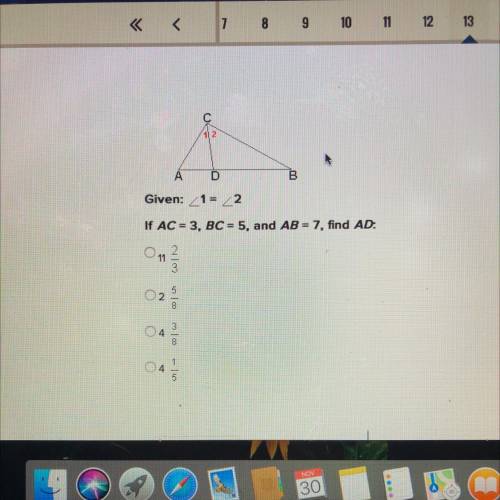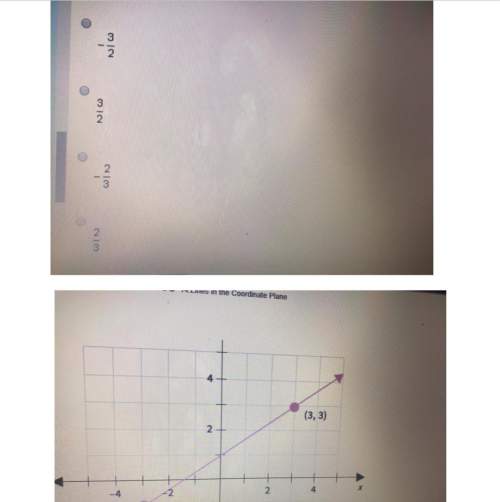If AC=3, BC=5, and AB=7, find AD:
11 2/3
2 5/8
4 3/8
4 1/5
...

Mathematics, 01.12.2020 04:30 noreenhussain
If AC=3, BC=5, and AB=7, find AD:
11 2/3
2 5/8
4 3/8
4 1/5


Answers: 3


Another question on Mathematics

Mathematics, 21.06.2019 15:30
Look at the following graph of the given equation. determine whether the equation is a function. explain why or why not.
Answers: 1

Mathematics, 21.06.2019 17:30
Asphere has a diameter of 10 in. what is the volume of the sphere?
Answers: 1

Mathematics, 21.06.2019 19:00
What are the solutions of the system? solve by graphing. y = x^2 + 3x + 2 y = 2x + 2
Answers: 1

Mathematics, 21.06.2019 19:20
1- is the product of two rational numbers irrational or rational? first, make a hypothesis by multiplying two rational numbers. then, use variables such as x=a/b and y=c/d and the closure property of integers to prove your hypothesis. 2- what do you think the product of a nonzero rational number and an irrational number is? is it rational or irrational? make use of variables, the closure property of integers, and possibly a proof by contradiction to prove your hypothesis. 3- why do we have to specify that the rational number must be nonzero when we determine what the product of a nonzero rational number and an irrational number is? if the rational number were 0, would it give us the same result we found in part b?
Answers: 3
You know the right answer?
Questions


Biology, 05.02.2021 22:30

Arts, 05.02.2021 22:30


Social Studies, 05.02.2021 22:30

Mathematics, 05.02.2021 22:30

Chemistry, 05.02.2021 22:30


Arts, 05.02.2021 22:30




Mathematics, 05.02.2021 22:30

Mathematics, 05.02.2021 22:30

Mathematics, 05.02.2021 22:30




Mathematics, 05.02.2021 22:30





